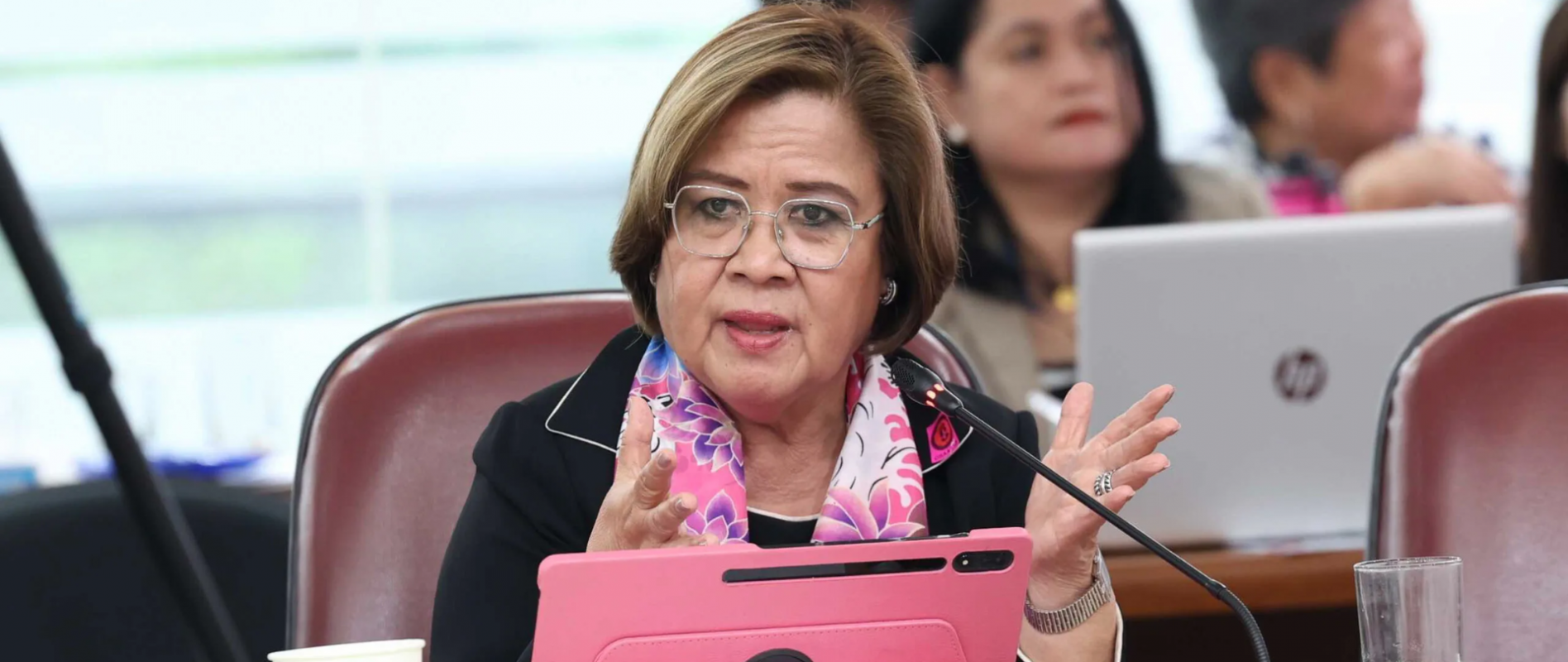SOLON SLAMS PROPOSAL TO LOWER AGE OF CRIMINALITY, INSISTS PROTECTION FOR CHILDREN
MAMAMAYANG Liberal Party-list Representative Leila de Lima has issued a strong condemnation of a bill seeking to lower the minimum age of criminal responsibility from 15 to 10 years old, calling the move a betrayal of the country’s most vulnerable.
“Lowering the age of criminal responsibility to 10 years old is not justice. It is abdication. It is a failure of imagination, of compassion, and of government,” De Lima declared.
The former justice secretary, human rights advocate, and political detainee-turned-lawmaker warned that the proposal—backed by Senator Robin Padilla—is not only misguided but also recycled.
She pointed out that the idea has been repeatedly rejected by child rights advocates, developmental experts, and human rights defenders.
“This bill does not address crime. It punishes trauma. It does not protect society. It betrays children we have already failed,” De Lima said.
Instead of resorting to punitive measures against minors, De Lima emphasized the need to understand the root causes of juvenile delinquency and the systemic failures that drive children into conflict with the law.
“We do not fix a broken justice system by putting its weight on the smallest, weakest shoulders,” she stated.
“We fix it by asking hard questions: Why are children turning to crime? Who truly benefits from their offenses? Where have we failed as a society?,” she added.
De Lima underscored the importance of the existing Juvenile Justice and Welfare Act, which she described as a “clear, progressive law rooted in restorative justice.
The real challenge, she argued, lies in the government’s weak implementation, not in the law itself.
“How many of our local governments have functioning Bahay Pag-asa centers? How many have enough trained social workers, psychologists, and personnel to deliver real intervention?” she asked.
Drawing from her experience as Justice Secretary, De Lima stressed the damaging effects of incarceration on children and advocated for education, care, and structured rehabilitation as the more humane—and effective—alternatives.
“If our answer to a fallen child is imprisonment, then it is not the child who should be on trial, but the system that has lost its compassion,” she said.
Rejecting the notion that harsher laws make the country safer, De Lima called on fellow lawmakers to consider the deeper moral question at stake.
“This is not about being ‘soft’ or ‘tough’ on crime. This is about who we are as a nation. Are we the kind of people who throw away a child before we even try to understand their pain?” she challenged.
To those who claim that children today are more exposed to crime and adult content, De Lima replied: “Exposure is not consent. Exposure is not maturity. Exposure is not accountability.”
She concluded her statement with a powerful message: “Let us stop treating children as threats. They are mirrors. If we don’t like what we see, it is not the mirror we must shatter—but the reflection of our failures.”













